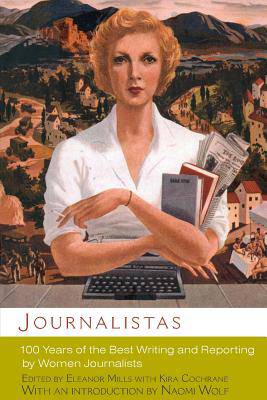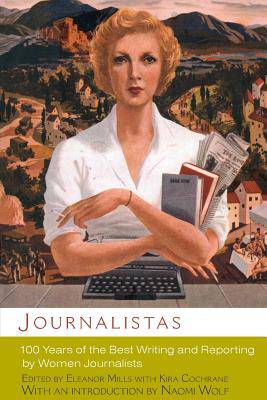
- Afhalen na 1 uur in een winkel met voorraad
- Gratis thuislevering in België vanaf € 30
- Ruim aanbod met 7 miljoen producten
- Afhalen na 1 uur in een winkel met voorraad
- Gratis thuislevering in België vanaf € 30
- Ruim aanbod met 7 miljoen producten
Zoeken
Journalistas
100 Years of the Best Writing and Reporting by Women Journalists
Naomi Wolf, Eleanor Mills
Paperback | Engels
€ 36,95
+ 73 punten
Omschrijving
Since their emergence as a journalistic force after the world wars, women have continued to break new ground in newspapers and magazines, redefining the world as we see it as well as the craft as it applied. Many of the pieces in Journalistas feel almost unsettlingly relevant today--the conclusions Emma "Red" Goldman drew in her 1916, "the Social Aspects of Birth Control," Maddy Vegtel's 1930s article about becoming pregnant at forty, and Eleanor Roosevelt's call for greater tolerance after America's race riots in 1943.
Many have pushed other limits: Naomi Wolf's Beauty Myth brought feminism to a new generation; Helen Fielding's Bridget Jones caused a media revolution: Ruth Picardie's unflinchingly honest column about living with cancer in 1997 brought a wave of British candor and a host of imitators; and when two iconic women come face to face, we have at one end, Dorothy Parker on Isadora Duncan (1928), and at the other, Julie Burchill on Margaret Thatcher (2004).Specificaties
Betrokkenen
- Auteur(s):
- Uitgeverij:
Inhoud
- Aantal bladzijden:
- 384
- Taal:
- Engels
Eigenschappen
- Productcode (EAN):
- 9780786716678
- Verschijningsdatum:
- 13/10/2005
- Uitvoering:
- Paperback
- Formaat:
- Trade paperback (VS)
- Afmetingen:
- 146 mm x 239 mm
- Gewicht:
- 471 g

Alleen bij Standaard Boekhandel
+ 73 punten op je klantenkaart van Standaard Boekhandel
Beoordelingen
We publiceren alleen reviews die voldoen aan de voorwaarden voor reviews. Bekijk onze voorwaarden voor reviews.











